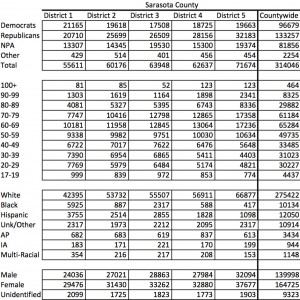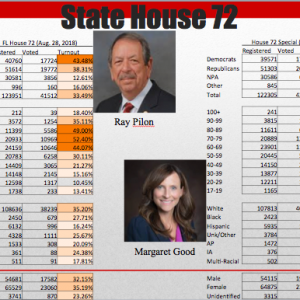Security Improvement Brings Public Access Loss
Under The Hood
SRQ DAILY
SATURDAY APR 28, 2018 |
BY JACOB OGLES
Public access means serious business in the City of Sarasota. The municipality enshrines in its charter the custodian of public records works for city commissioners, not administration, and Sarasota years ago became a pioneer for providing access to the emails of all city employees. But new challenges bring a new barrier to transparency and have ended one convenience for super-wonks.
Sarasota for years kept a dedicated access terminal in the City Auditor and Clerk’s Office where anyone could search emails for any city employee. It’s the sort of service press and self-proclaimed watchdogs adored, though its popularity ebbed through the years as the noses of the curious poked into their personal computers instead of stations at City Hall. Still, it seems a distinct loss for citizens that last year, the station shut down.
The shift came with a switch toward cloud computing, Sarasota IT Director Herminio Rodriguez explains, which brought a long-overdue improvement to physical security. Sarasota previously maintained seven terabytes (that’s more than 7.3 million megabytes) worth of email in servers kept in Sarasota, requiring warehousing for a great deal of hardware. Now, the city keeps emails on a server in Virginia, with backups in Nevada and California. The records get stored on the cloud as part of a government contract with Microsoft.
Why’s this better? For one thing, Rodriguez says, Florida’s a lousy place to keep anything important. You face a threat of natural disasters like hurricanes. It also costs more to properly cool hard drives and keep power on during even mild thunderstorms. Cloud computing also brings protections from hacking, as the government firewalls stopping hostile parties from breaking into city files are the same barriers protecting the U.S. Department of Homeland Securities records. Since the city fell victim to a ransomware attack in 2016, that’s a tough benefit to ignore.
But make no mistake, this comes at a cost for citizens when it comes to transparency. Anyone logging into Sarasota’s website can still look at non-exempt emails sent among Sarasota’s city commissioners and the three top charter officials, but to check any other emails at City Hall requires a public information request. But for those trying to find out information about how city resources get managed (and sometimes mismanaged), scavenging through records seems less attractive when you put everything in writing.
That might explain the grumpy tone of a recent request for information from local gadfly Martin Hyde (though those who know Hyde realize an aggressive tone accompanies most of his communications with City Hall). He sought information on a county commission candidate who resigned from the Police Complaints Committee. That candidate since dropped out of the race, so any dirt will likely be inconsequential now, but it bugged Martin he couldn’t poke around city email on his own. Hyde also routinely critiques city administration spending, and he’d rather not have every move called in advance. “It immediately sends up a flare,” says Hyde, who finds requests that turn up embarrassing information don’t get met as quickly as ones that never hit paydirt.
Assistant City Manager John Lege says the city remains transparent as ever. If a request for info is as simple as an email dump, it will be met quickly, and there will be no charge for less than 30 minutes of work—Hyde’s most recent request got met at no charge. It’s also worth noting in the history of email, this process has been how nearly every jurisdiction in Florida conducted business. Sarasota’s always been different though.
Incidentally, Rodriguez tells me the city does keep one physical backup for email in Sarasota, though its on a flat file that can’t be searched as easily as servers, or as efficiently as staff can pull records from the cloud. But I know the City Clerk’s Office, which makes most decisions on record access, would prefer keeping a station open.
Most members of the press favor easy access for obvious reasons, but I’ll concede Rodriguez’s desire for physical and digital security offers the rare decent excuse for limits. It would be great, though, if a priority were placed on restoring public station in the future, whenever a coming technological advance allows it.
Jacob Ogles is contributing senior editor for SRQ Media Group.
« View The Saturday Apr 28, 2018 SRQ Daily Edition
« Back To SRQ Daily Archive










